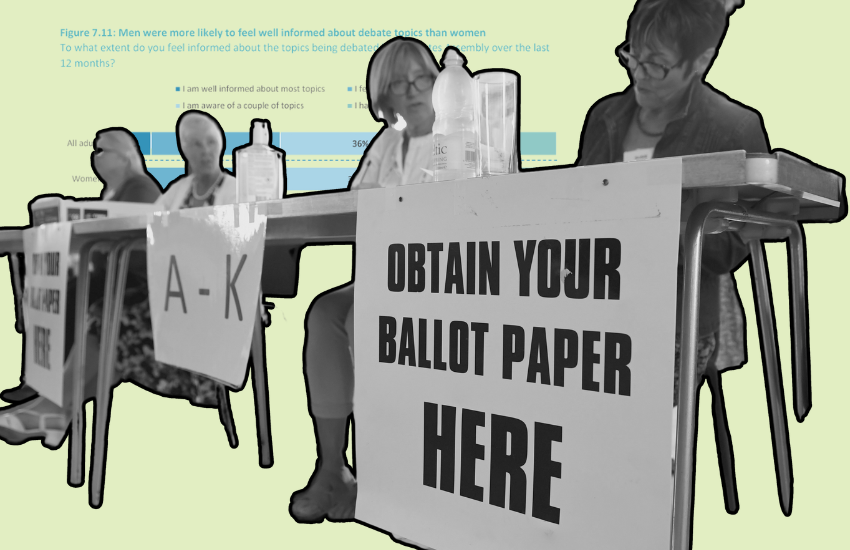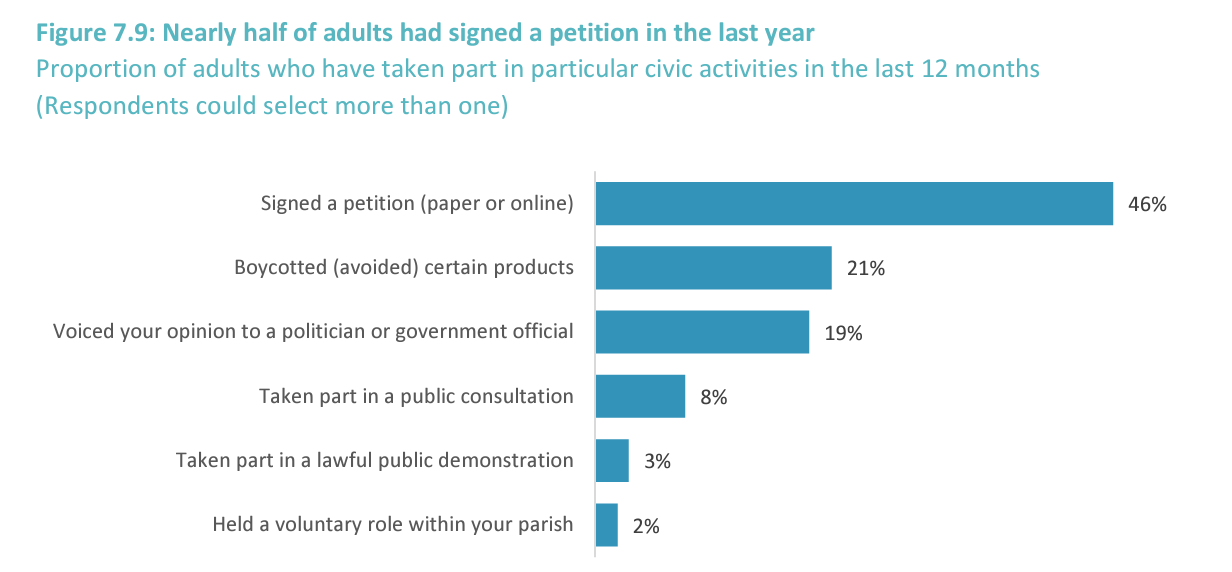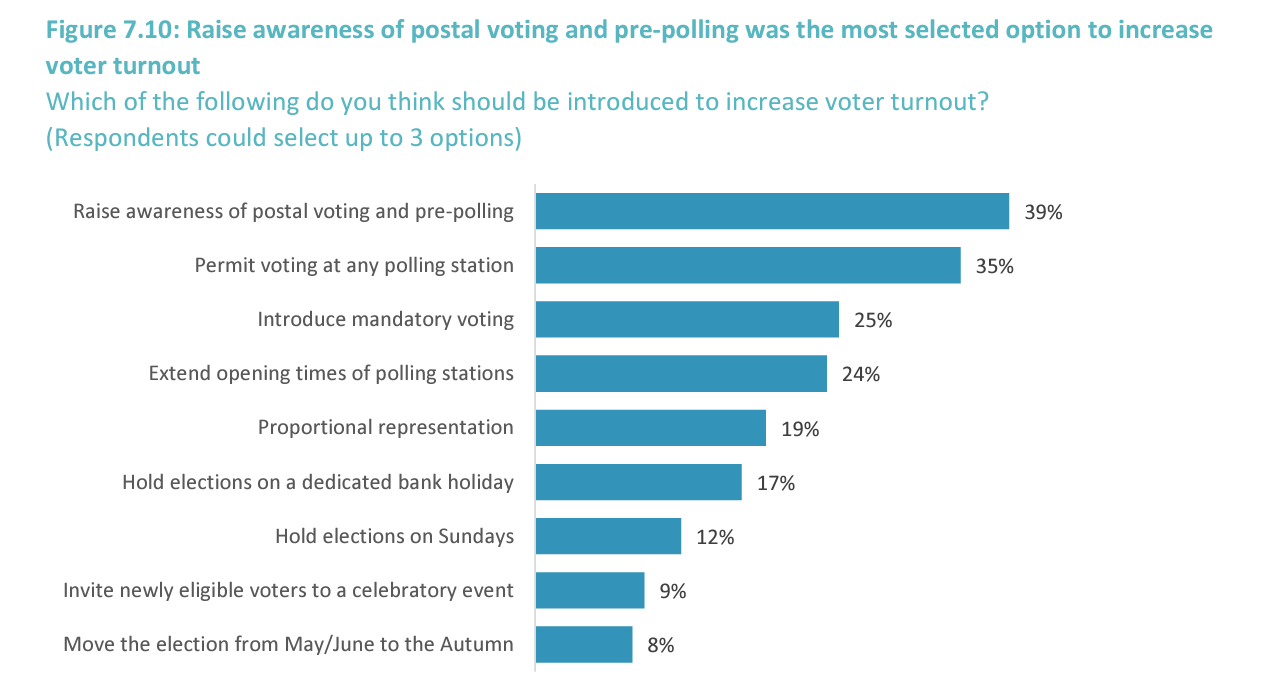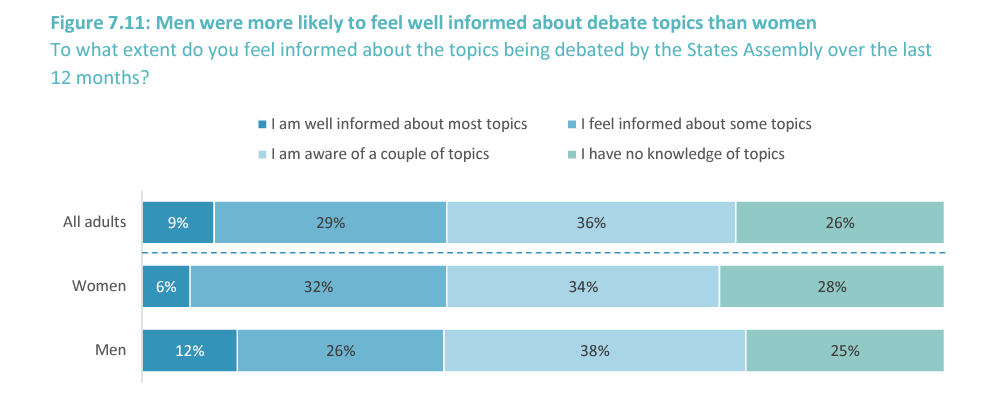


In a major recent survey, a quarter of Jersey adults said they'd be in favour of making voting mandatory to combat the island's low political engagement. But even without such drastic measures, what can Jersey do to engage more voters?
Express took a look at what could be done to get more people engaged in local democracy...
The island has, over the years, consistently seen a low turnout in its elections.
In 2020, Jersey was found to have the lowest turnout of the OECD's 38 member countries with just 43.4% of islanders voting in 2018.
The 2022 election was no better, with a turnout of 41.6%.
The Jersey Opinions and Lifestyle Survey, conducted by Statistics Jersey every year, heard from around 1,200 islanders – giving one of the most representative accounts of what Jersey residents think and how they live.
As part of this survey, islanders were asked for their views and experiences on voting.
A low turnout doesn't paint the full picture: islanders found ways to get involved in their community – more than two-fifths (43%) had volunteered for charities spanning the range of the island's life, from sports, culture, heritage, health or disability charities to community and neighbourhood groups, school groups and churches.
The number of volunteers in the island had dipped during the covid-19 pandemic, but by 2023 had returned to similar levels as in 2017.

Islanders also found other ways to be involved in politics: almost half had signed a petition, a fifth had boycotted certain products, and just under a fifth had spoken to a politician.
Petitions, according to the States Greffe, are "a popular avenue for islanders to express their views on topical issues" – something that is being followed up with the Privileges and Procedures Committee, which is due to research how this can be used to build engagement.
The survey also gave respondents a list of measures, and asked islanders to select which should be introduced to increase voter turnout.
A quarter of respondents selected "introduce mandatory voting" – a measure that already exists in countries including Australia, Belgium, Luxembourg, Argentina, Brazil and Peru.
This came from a focus group held in 2022, according to the States Greffe, who added that this would be considered by the Privileges and Procedures Committee.
The States Greffe noted that introducing mandatory voting would be a political decision.
But Reform Jersey leader and Housing Minister Sam Mézec does not believe that the States will give mandatory voting "any serious consideration", as it would be "quite a drastic thing to do".

But other measures could be on the table. The easiest solutions might have something to do with on-the-day logistics: where polling stations are located and if people have enough time to get there.
The most popular option to raise voter engagement – selected by 39% of survey respondents – was to "raise awareness of postal voting and pre-polling".
Currently, voters can either travel to their parish's polling station on election day, use a postal vote, or vote at a "pre-poll" station in the week prior to the election.
In 2022, the pre-poll station was at St Paul's Centre in town.
But 35% of respondents said that voters should be allowed to cast their ballots at any polling station.
Currently, most parishes just have one polling station – meaning this can be far from people's homes, sometimes far from the most populated areas, and hard to reach by public transport.
Similar suggestions were echoed by Deputy Mézec and the States Greffe, who both supported automatic voter registration – where people would automatically be added to the electoral register when they turn 16, or once they have lived in Jersey for two years.
According to the States Greffe, work on automatic voter registration is "underway".
They added: "By automatically enrolling everyone who is entitled to vote onto the register, we have greater capacity to focus on the critical messages ‘why vote’ and ‘how to vote’."
Currently, people assume they are registered to vote because they are registered for parish rates or they forget to re-register, Deputy Mézec explained – even describing how he had seen some voters turn up at the polling station only to discover that they hadn't registered to vote.
"I believe we are on track for automatic voter registration by the next election," the Housing Minister added, as the Privileges and Procedures Committee considers the measure.
Automatic electoral registration was allocated £974,000 in the Government's Budget for 2025 to 2028.
IT for the project was estimated to cost around £385,000 in 2025, with costs reducing to £45,000 in 2026 and 2027.
The survey also found that men, those who had lived in the island for a long time, more highly educated islanders, and older islanders felt more informed about debate topics.
Twice as many men (12%) than women (6%) felt "well informed about most topics".

Half of Portuguese or Madeiran adults said they had "no knowledge" of topics debated in the States Assembly.
Deputy Mézec said Reform had gone some way to include under-represented islanders in politics, with the first and second Portuguese States members in Carina Alves and Beatriz Porée (who is also the first Black States member), and the first Romanian States member in Raluca Kovacs.
These, he described, had opened up new conversations when the party was campaigning.
Deputy Mézec said: "If we want minority groups to be more interested in politics, they have to be able to look at politics and say: 'That's a place for me.'"
Social media and newsletters had also helped engage supporters, and there might be a need to branch out, for example to TikTok, where most young voters are, he added.
Across all groups, the majority of adults weren't confident with the questions that come up in the States Assembly.
More than a quarter (26%) reported having "no knowledge" of the topics discussed in the States Assembly.
The States Greffe added that they had employed their first Outreach Manager this year who they said "is working hard to develop relationships with a range of organisations, developing an understanding of their needs and bringing this back to the wider team to inform the decision we’re making, particularly focusing on the accessibility of all our content".
And an Education Manager, appointed in November, "is working at pace to integrate the Assembly further into the curriculum and developing plans to support teachers’ knowledge and understanding of the Assembly, and developing resources to aid their teaching".
This comes with a range of other measures, mostly focused on education.
These included the People's Debate, the "Plan to Stand" campaign, podcasts, a new website and monthly tours of the States Chamber and Royal Court, with some aimed at corporate and community groups.
The States Greffe is also due to take over Jersey Youth Parliament from the Youth Service, and focus groups sought the input from young people, and a survey of young people will go out in the new year.
FOCUS: Would weekend elections make more people vote?
“It’s not that they can’t vote, they don’t trust the political system"
Comments
Comments on this story express the views of the commentator only, not Bailiwick Publishing. We are unable to guarantee the accuracy of any of those comments.